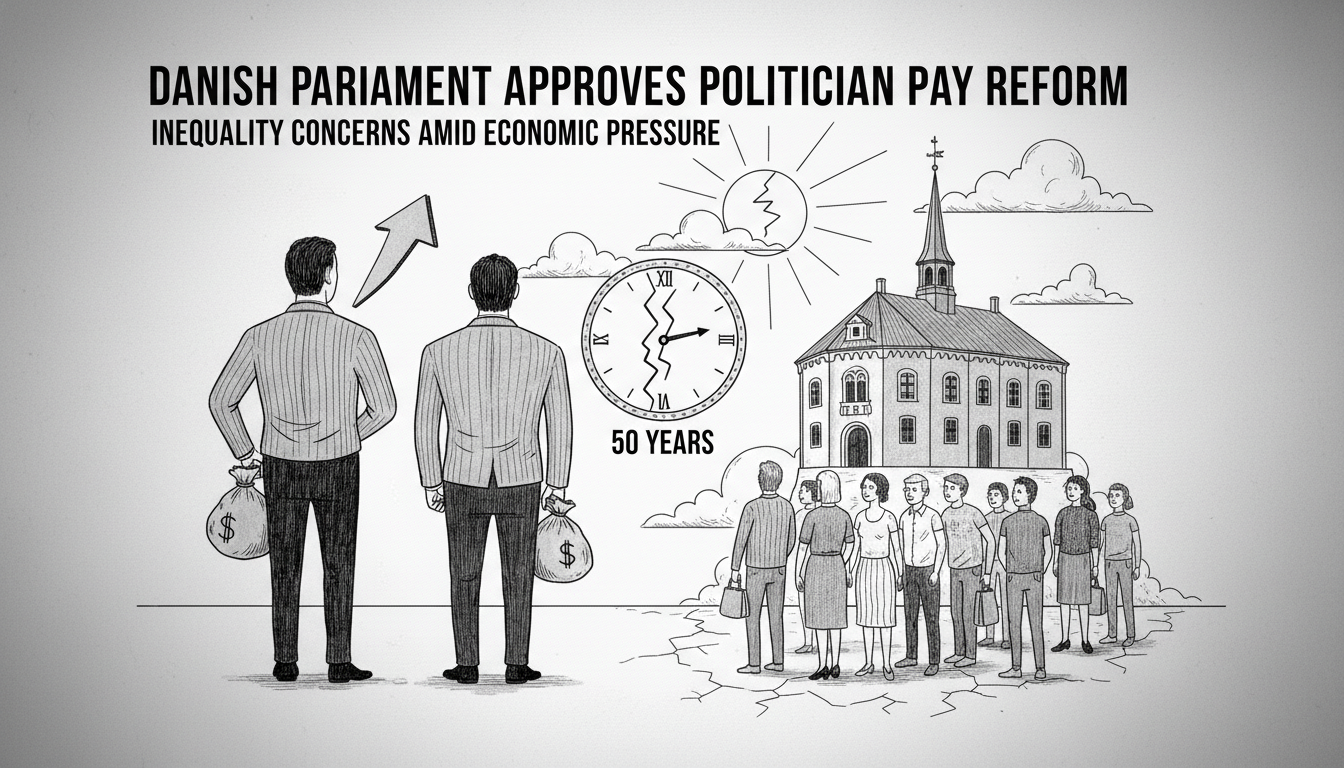A broad majority in Denmark's parliament has backed government legislation to change how politicians receive compensation. The new system will provide higher salaries but lower pensions for elected officials. Supporters argue this creates more transparent pay structures aligned with modern labor markets.
Leif Lahn Jensen, the proposal's main sponsor, expressed relief about ending lengthy discussions on politician compensation. He stated the changes make salaries more understandable and contemporary. Three parties opposed the measure: Denmark Democrats, Danish People's Party, and the Red-Green Alliance.
Critic Peder Hvelplund questioned the timing of raising politician salaries while many Danes face financial pressure. He described the approach as insane, particularly during times requiring wealth redistribution. Hvelplund noted the new system won't save taxpayer money for fifty years, costing double-digit millions annually until 2075.
Liberal Alliance's Ole Birk Olesen supported the proposal, comparing parliamentary salaries to department heads in central administration. He argued the changes will prevent future politicians from setting their own pay, instead linking compensation to general societal trends.
Finance Minister Nicolai Wammen acknowledged most ministers will experience decreased lifetime income under the new system. He confirmed the arrangement will cost more public money until full implementation decades from now.
Danish People's Party representative Mikkel Bjørn opposed the lengthy phase-in period. He questioned raising politician pay when many citizens struggle financially. The criticism highlights ongoing tension between political compensation and public sector wages in Scandinavia's welfare states.
Hvelplund acknowledged needing changes to the current system despite his opposition. He highlighted extreme pension privileges where politicians accumulate equivalent retirement benefits in eight years that care workers earn over twenty years. This comparison underscores the compensation gap between political class and public sector employees in Denmark's egalitarian society.
The debate reflects broader Nordic discussions about political transparency and appropriate compensation in high-tax welfare states. Denmark maintains one of Europe's most equal income distributions, making politician pay particularly sensitive. The fifty-year implementation timeline raises questions about political accountability for long-term fiscal impacts.
Nordic countries typically feature compressed wage structures with relatively small differences between lowest and highest earners. Political compensation reforms often trigger public debate about maintaining this social contract. The Danish model emphasizes transparency and moderation in official remuneration despite high living costs.
International observers watch Nordic political compensation trends as indicators of social democratic values under pressure. Denmark's gradual approach contrasts with more abrupt reforms seen elsewhere in Europe. The extended timeline suggests political compromise between immediate transparency goals and long-term fiscal responsibility.

